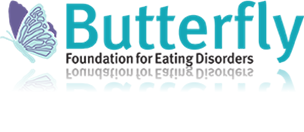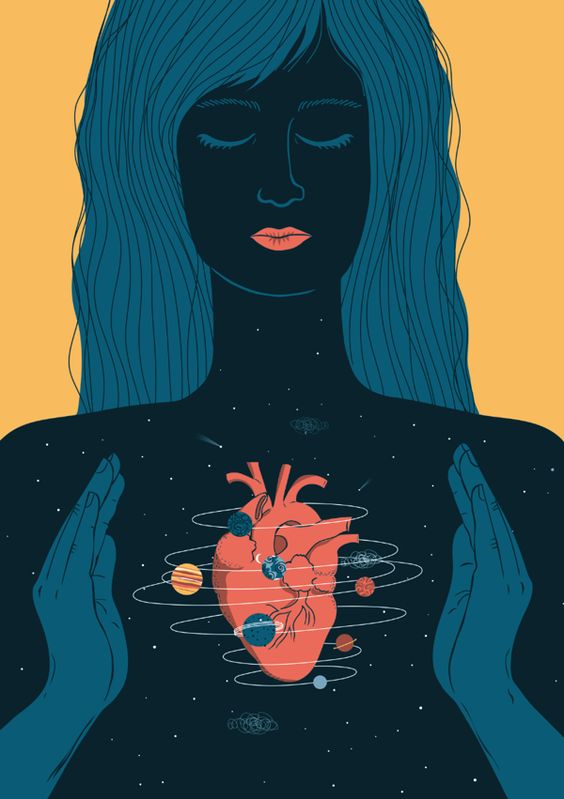
Supporting your loved ones with E.D in #3 easy steps ❤
Eating Disorder Awareness week has recently come and gone, let’s make sure that all of the traction it has gained raising awareness and education on supporting those we love with E.Ds, doesn’t simply go along with it.
These days, most of us know someone who has been effected by an eating disorder., maybe even you, who had been that ‘someone’, finding yourself amongst the menacing grip of an eating disorder, dreading any and every opportunity to ‘eat out’ and catch up over lunch with your family or friends.
So many of us identify with self-esteem and body image issues as a byproduct of environmental influencing, entire business empires have been established on profiting off of the shattered self-image we have of ourselves, especially women, that we are not good enough the way we are.
This past week of awareness campaigning not only achieved a great deal of positives by bringing an increase in awareness to Eating Disorders, but for some it was also a very difficult time of self realisation, triggers, painful memories and shame. To those who are currently experiencing this struggle please know that you are not alone, you are beautiful and you are so very much loved!
It’s okay. <3 Once you’ve identified enough with an eating disorder and it’s symptoms, reaching out to voice your struggle can seem overwhelming and almost terrifying;
“Do I even have an issue?” “What if it’s nothing?” “who do I even go to of help?” “What if they don’t take me seriously?”
You sometimes tell yourself;
“..They won’t understand…” “It doesn’t matter, I don’t matter…” “I’ll be right”
But you know what? You DO matter and it is worth it to reach out for support and allow yourself to begin to heal.
If you or someone you know needs support with dealing with an Eating Disorder, help is available. Talk to someone now. Call our National Help Line on 1800 33 4673.
Taking a closer look at E.D’s
Eating Disorders (E.Ds) had been previously identified as mostly affecting women aged between 10 and 40 years old, broadly divided into #2 groups; Anorexia Nervosa & Bulimia Nervosa.
Today we know a lot more and hope to break the stigma attached to eating disorders and those who are affected by this life altering condition. Eating disorders are about so much more than just eating food &/or not eating food, often co-occurring with other disorders such as; anxiety, depression, OCD and post-traumatic stress disorder.
Substance abuse, physical and emotional abuse, weight shaming and bullying have also been linked with the onset of eating disorders in many cases.
We also now understand that a lot of what influences our state of mental health starts within our gut, feeding these little guys the right stuff can in-turn send signals to your brain that assist with regulating your metabolism, mood and thoughts which may help reduce negative cycles of binge eating/starvation.
More studies do need to be conducted however to examine the link more closely.
Subclinical eating disorder behaviours (including binge eating, purging, laxative abuse, and fasting for weight loss) are nearly as common among males as they are among females.
Anorexia & Bulimia are well known eating disorders. B.E.D Binge Eating Disorder, is another alarmingly common yet largely unrecognised eating disorder, often associated with incidences of extreme stress and emotional crisis.
Symptoms of B.E.D are often overlooked by individuals as sacrificing our health for superficial gratification; depriving oneself of necessary food/nutrients, or injecting toxic chemicals into their bodies in order to look a certain way, is sadly becoming considered normal to achieve adoration and attention. (Either with oneself or with others)
Crash Dieting, excessive exercise & varied uses of laxatives, as well as starvation are all becoming common practice among many teenagers and young adults, in an effort to drop unwanted weight quickly.
It is quite terrifying to think of the damage this can have on long term health. By being deprived of essential nutrients and minerals for an extended time, our bodies try to compensate for this lack of energy by shutting down certain bodily processes in an effort to reserve energy and only use what is absolutely necessary. Similar to the Flight, Fight or Freeze response.
If we could focus on the gut health balance as an important part of recovery, then the likelihood of success should be increased dramatically for the both mental and physical bodies, as the gut system provides the body with the ability to optimally absorb nutrients and minerals as required. If our ability to absorb nutrients is compromised, then all other functions that are also reliant on these nutritional fuels (pretty much all of them) then our body will become exhausted and overwhelmed. It is imperative to give the body what it needs in order to function at an optimal level and to also encourage self-healing.
Access to effective services is essential, understanding that everyone’s experience of an eating disorder is different.
Here are #3 easy steps to support those effected. . Knowing that support is available without judgement and prejudice, can make a world of difference when it comes to a successful recovery.
- Be available to talk to . . . you don’t always need have the right words or replies, just be there to listen. Sometimes being a live diary page, to have your loved one completely unload, uncensored and not worrying about your judgments. Ask how their day was? If anything interesting or hectic or amazing happened? Be willing and able to Invite the talk about heavier things if needed but without being awkward, offer the platform to discuss otherwise keep it light and find a unique way to check in with each other.
A safe word is a great thing to have, it helps to say it all without saying it all.
2- Deviate conversations away from food if you can. Even though it’s ok to have food related conversations, try not to make it ALL about food and dining out etc. Allow food topics to come up naturally and don’t freak out if they do.
3- Check up on them to see how they are – not so much what they’ve eaten but how their state of mind is. Establish special code words with one another that say it all without saying it all…
~ *shumble – it was a tough day but I got through it ok.
Let’s not become too overwhelming when we support our loved ones through struggles and difficult times in their lives. Being considerate, consistent and confident in your approach will be a sure way to know you are a pillar of strength that they can lean on.
x

Personalised and confidential support for the following:
- People with an eating disorder
- People with body image issues
- Carers
- Partners, family and friends
- Teachers
- Counsellors
- Employers
- Health professionals
- Anyone with a question about eating disorders or body image
If you or someone you know needs support with dealing with an Eating Disorder, help is available. Talk to someone now. Call our National Help Line on 1800 33 4673.





